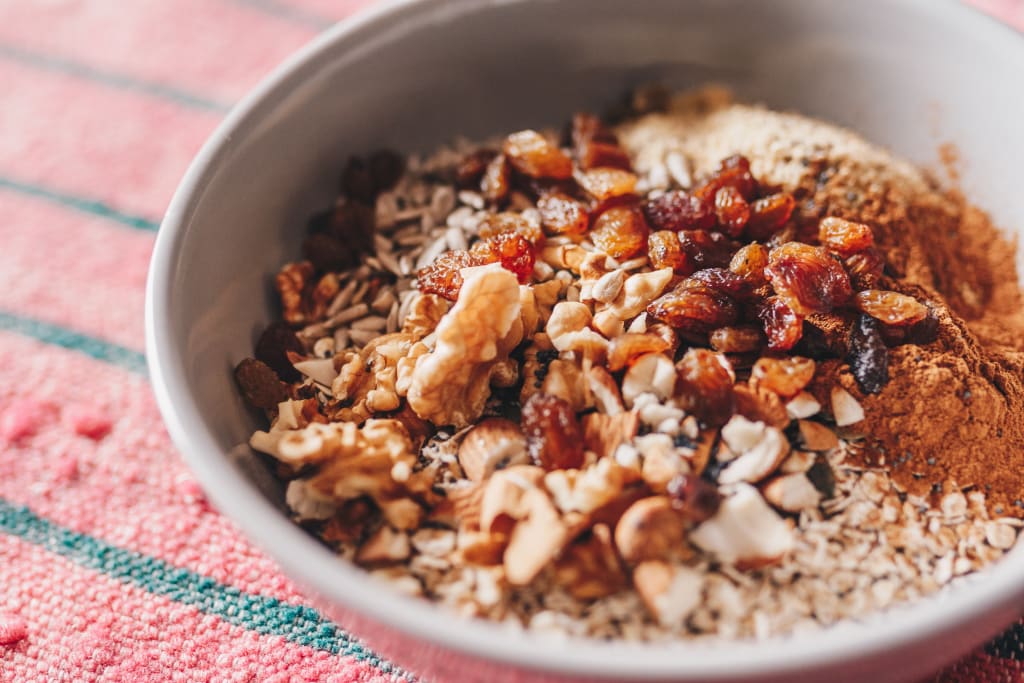What Happens to Your Body When You Eat Oatmeal Every Day?
The Magic of Oats

Oatmeal is a staple food for many people worldwide. It is a versatile and affordable food that has been praised for its many health benefits. While consuming oatmeal daily can provide these health benefits, it is crucial to be mindful of what you add to your oatmeal. Adding too much sugar, honey, or sweet toppings can cancel out the positive effects of oatmeal and make it an unhealthy, high-calorie meal. But, in general, eating oatmeal every day can improve your health and make you feel better.
Lower Cholesterol Levels and Protect LDL Cholesterol
Heart disease is a leading cause of death worldwide, and high blood cholesterol is a major risk factor. Oatmeal can help lower your cholesterol levels, especially LDL cholesterol. This is due to the beta-glucan fiber found in oats, which has been shown to reduce total and LDL cholesterol levels. Beta-glucan may also increase the excretion of cholesterol-rich bile, reducing the circulating levels of cholesterol in the blood. Additionally, antioxidants in oats work together with vitamin C to prevent LDL oxidation, which is a crucial step in the progression of heart disease.
Improve Blood Sugar Control
Type 2 diabetes is a common disease characterized by elevated blood sugar levels. Oatmeal may help lower blood sugar levels, especially for people who are overweight or have type 2 diabetes. This is mainly due to beta-glucans ability to form a thick gel that delays the emptying of the stomach and absorption of glucose into the blood.
Help You Lose Weight
Oatmeal is not only a delicious breakfast food, but it is also filling. Eating filling foods can help you eat fewer calories and lose weight by delaying the time it takes your stomach to empty food. Beta-glucan in oatmeal may increase your feeling of fullness, and promote the release of the satiety hormone PYY. It has been demonstrated that this hormone can cause you to eat fewer calories and may lower your risk of obesity.
Improves Your Skin
Oatmeal has long been used in the treatment of itchy and irritated skin conditions. It can be found in numerous skin care products as colloidal oatmeal, which is approved by the FDA as a skin-protective substance. Oat-based skin products may improve symptoms of eczema and other skin conditions. However, it is important to note that the skincare benefits only pertain to oats applied to the skin, not those that are eaten.
Decreases the Risk of Childhood Asthma
Asthma is the most common chronic disease in children and is an inflammatory disorder of the airways. Early introduction of oats in an infant's diet may be protective and decrease the risk of childhood asthma. One study reports that feeding oats to infants before the age of six months is linked to a decreased risk of childhood asthma.
Relieves Constipation
Elderly people often experience constipation, and laxatives are commonly used to relieve this issue. However, laxatives can lead to weight loss and reduced quality of life. Older adults who experience constipation may find relief from it by eating oat bran, the grain's outer, fiber-rich covering. One trial found that well-being improved for 30 elderly patients who consumed a soup or dessert containing oat bran daily for 12 weeks. Moreover, 59 of those patients were able to stop using laxatives after the three-month study.
How to Incorporate Oats into Your Diet
Oatmeal can be enjoyed in several ways, but the most popular way is to simply eat oatmeal or porridge for breakfast. Another option is to add oats to smoothies and yogurt bowls. This will add a creamy texture and extra fiber to your meal. Oats can also be used as a substitute for breadcrumbs in recipes for meatballs, burgers, or meatloaf. To add some crunch, sprinkle oats on top of your salad or mix them with nuts and seeds for a nutritious snack.
For those who enjoy baking, oats can be used to make muffins, cookies, and other baked goods. Simply replace a portion of the flour in your recipe with oats for a healthier alternative. You can also make overnight oats by mixing oats with milk, yogurt, and any desired toppings. This is a quick and easy option for those mornings when you are short on time.
Overall, incorporating oats into your diet is easy and can be a delicious way to add extra fiber, vitamins, and minerals to your meals. Whether you enjoy oatmeal for breakfast, add oats to your smoothies and baked goods, or use them as a substitute for breadcrumbs in recipes, the possibilities are endless. So, why not start incorporating oats into your diet today and reap the many benefits they have to offer?





Comments
There are no comments for this story
Be the first to respond and start the conversation.